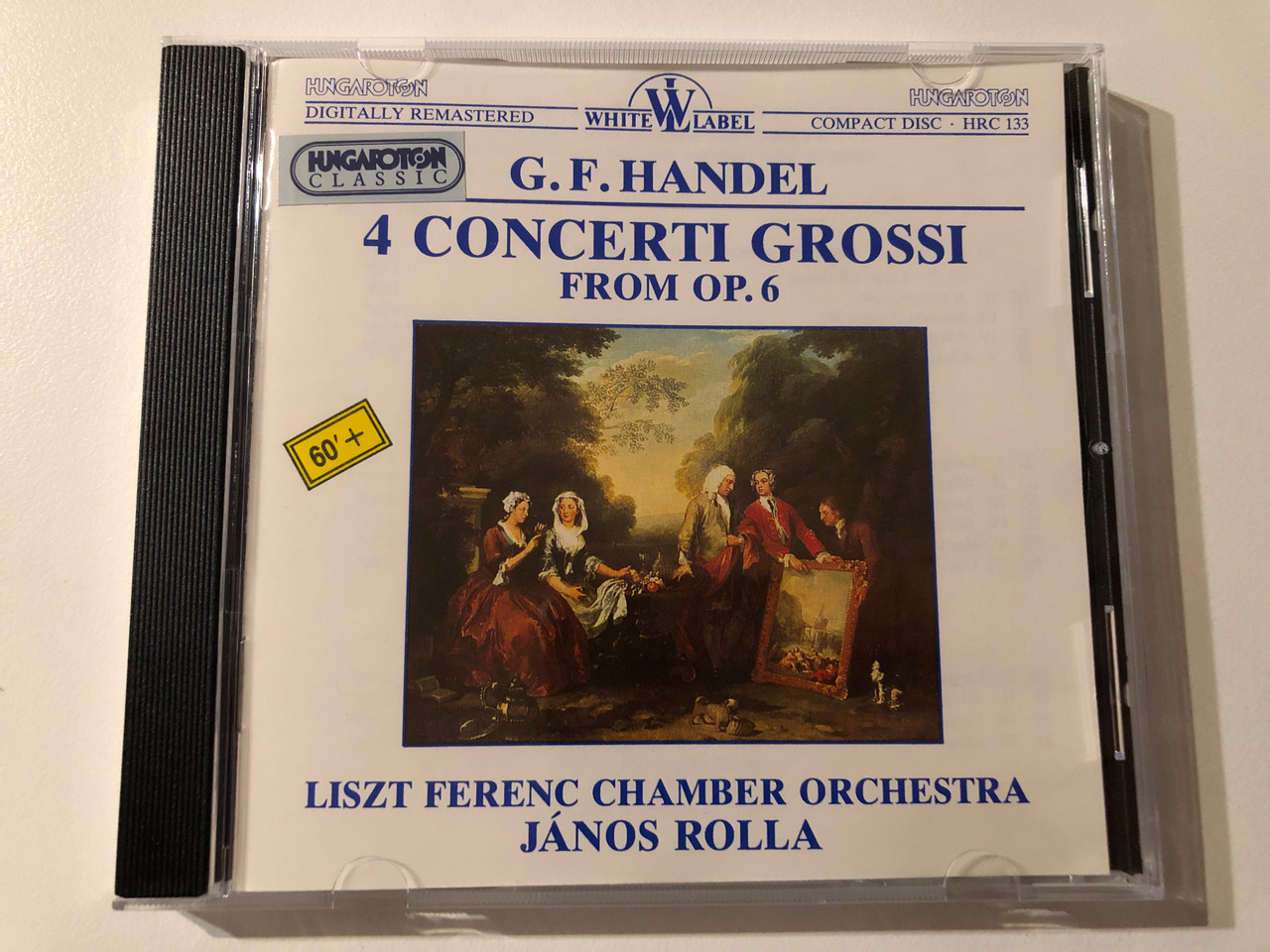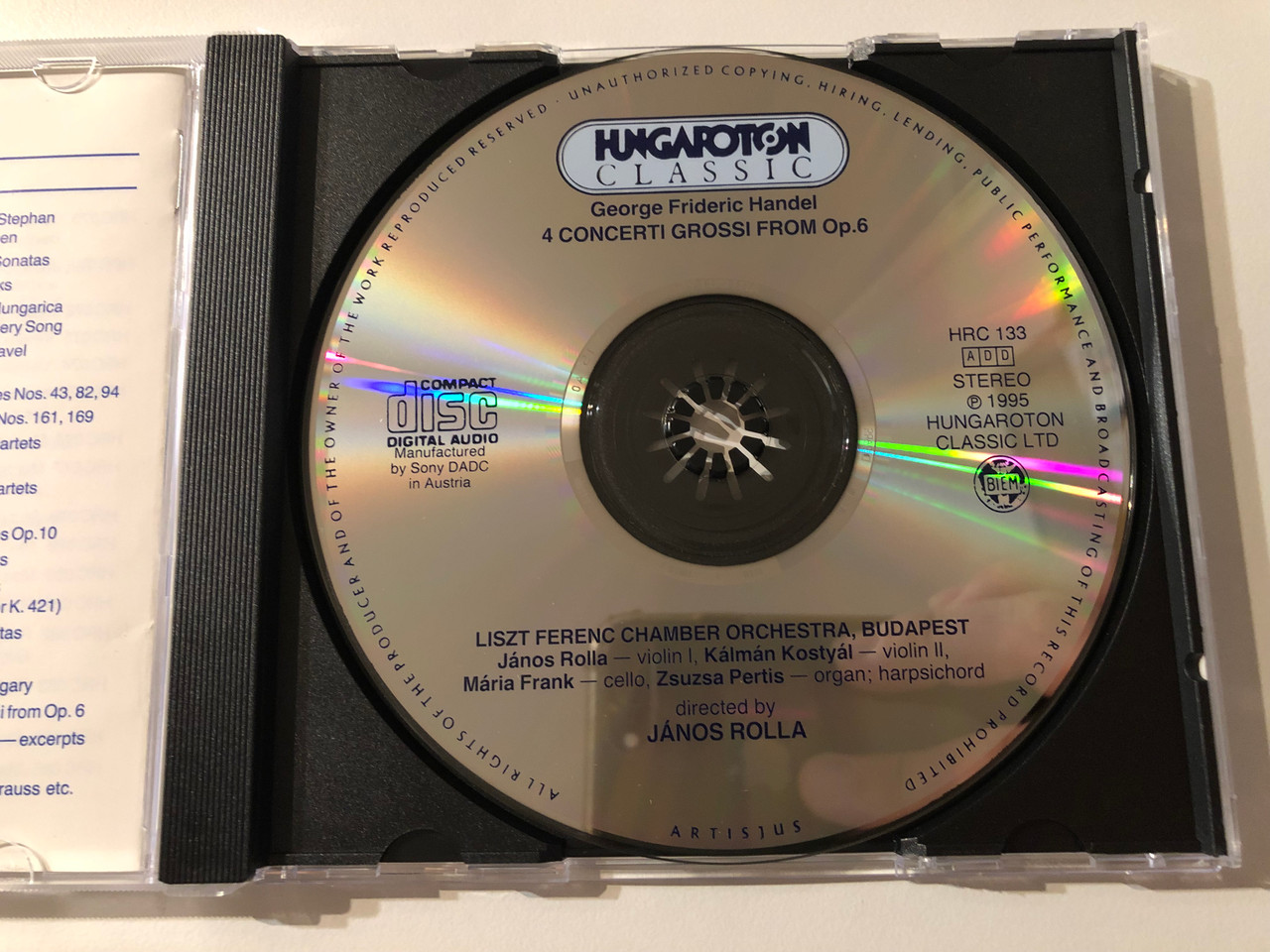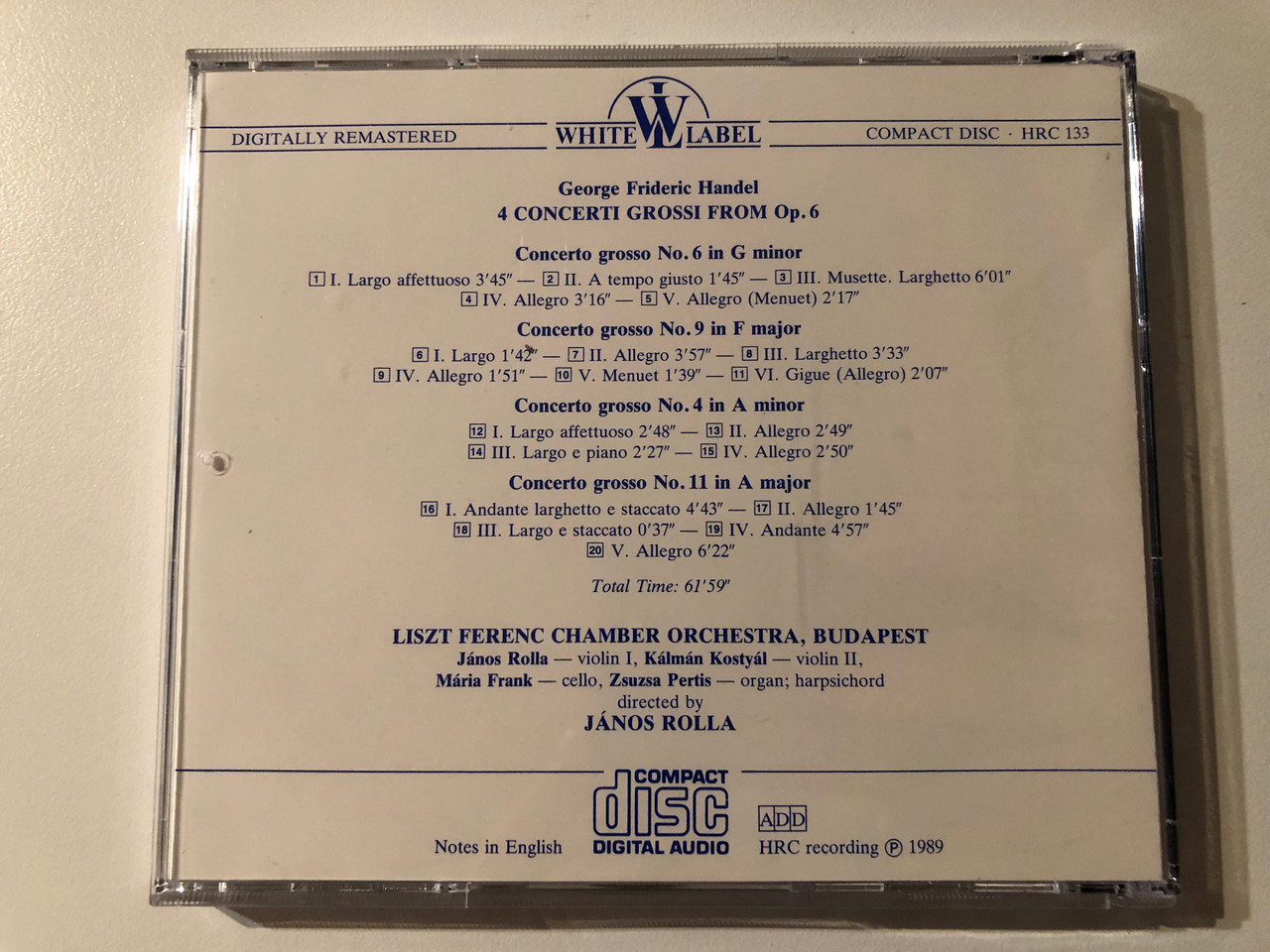Description
G. F. Handel - 4 Concerti Grossi From Op. 6 - Liszt Ferenc Chamber Orchestra, Janos Rolla / Hungaroton Classic Audio CD 1995 Stereo
HRC 133
| Label: | Hungaroton – HRC 133 |
|---|---|
| Series: | White Label |
| Format: | |
| Country: | Hungary |
| Released: |
1995 |
| Genre: | Classical |
Tracklist:
Concerto grosso No.6 in G minor
1. I. Largo affettuoso 3:45
2. II. A tempo giusto 1:45
3. III. Musette. Larghetto 6:01
4. IV. Allegro 3:16
5. V. Allegro (Menuet) 2:17
Concerto grosso No.9 in F major
6. I. Largo 1:42
7. II. Allegro 3:57
8. III. Larghetto 3:33
9. IV. Allegro 1:51
10. V. Menuet 1:39
11. VI. Gigue (Allegro) 2:07
Concerto grosso No.4 in A minor
12. I. Largo affettuoso 2:48
13. II. Allegro 2:49
14. III. Largo e piano 2:27”
15. IV. Allegro 2:50
Concerto grosso No. 11 in A major
16. I. Andante larghetto e staccato 4:43
17. II. Allegro 1:45
18. III. Largo e staccato 0:37
IV. Andante 4’57"
V. Allegro 6’22
- Orchestra - Liszt Ferenc Chamber Orchestra, Budapest
- Violin - Janos Rolla
- Violin II - Kalman Kostyal
- Cello - Maria Frank
- Organ, harpsichord - Zsuzsa Pertis
- Directed by - Janos Rolla
Handel: Concerto grosso, Op. 6 No. 6 in G minor, HWV324
Handel: Concerto grosso, Op. 6 No. 9 in F major, HWV327
Handel: Concerto grosso, Op. 6 No. 4 in A minor, HWV322
Handel: Concerto grosso, Op. 6 No. 11 in A major, HWV329
Franz Liszt Chamber Orchestra, Janos Rolla
János Rolla violin I, Kálmán Kostyál Violin II,
Mária Frank - Cello, Zsuzsa Pertis organ, harpsichord
George Frideric (or Frederick) Handel (/ˈhændəl/; born Georg Friederich Händel ); 23 February 1685 (O.S.) [(N.S.) 5 March] – 14 April 1759) was a German, later British, Baroque composer who spent the bulk of his career in London, becoming well known for his operas, oratorios, anthems, and organ concertos. Handel received important training in Halle-upon-Saale and worked as a composer in Hamburg and Italy before settling in London in 1712; he became a naturalised British subject in 1727. He was strongly influenced both by the great composers of the Italian Baroque and by the middle-German polyphonic choral tradition.
Within fifteen years, Handel had started three commercial opera companies to supply the English nobility with Italian opera. Musicologist Winton Dean writes that his operas show that "Handel was not only a great composer; he was a dramatic genius of the first order." As Alexander's Feast (1736) was well received, Handel made a transition to English choral works. After his success with Messiah (1742) he never composed an Italian opera again. Almost blind, and having lived in England for nearly fifty years, he died in 1759, a respected and rich man. His funeral was given full state honours, and he was buried in Westminster Abbey in London.
































